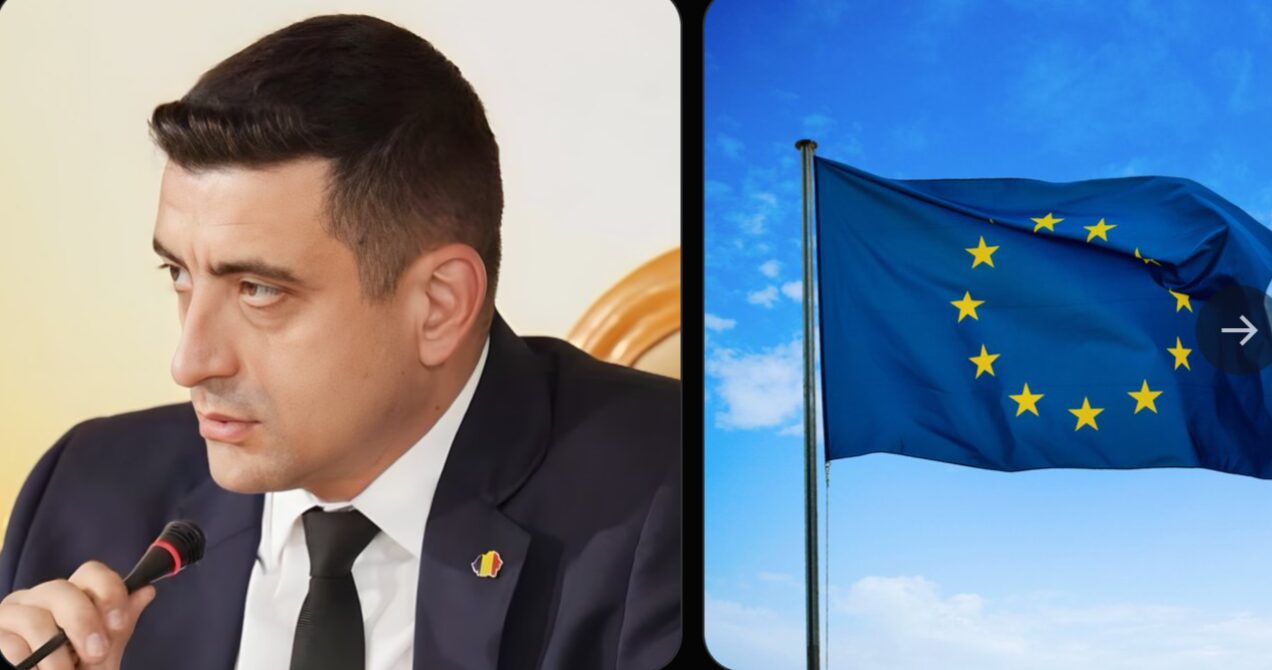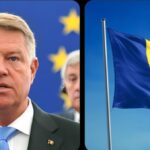ROMANIA’S George Simion named VICE PRESIDENT of EU’s Conservatives & Reformists Party
In a significant development for Romania’s political landscape, George Simion, the leader of the far-right political party AUR (Alliance for the Unity of Romanians), has been appointed as the Vice President of the European Conservatives and Reformists (ECR) Party. This appointment marks a major milestone for Simion and his party, signaling Romania’s growing influence within the European Union’s conservative political circles. The move has generated considerable attention both domestically and internationally, as it comes at a time when Europe is grappling with a range of issues, from immigration to economic reform. Simion’s rise within the ECR reflects broader shifts in European politics, with nationalist and conservative movements gaining traction in many EU member states.
Simion’s new role as Vice President of the ECR Party places him at the heart of European political discussions, particularly regarding the future direction of the EU. The ECR is a significant political force within the European Parliament, advocating for a more decentralized Europe, national sovereignty, and a strong commitment to conservative values. With Simion now in a leadership position, Romania’s voice within the ECR is poised to grow stronger, potentially reshaping the country’s influence within the EU’s decision-making processes.
George Simion: A Rising Star in Romanian Politics
George Simion’s political career has been marked by his outspoken nationalism and criticism of the European Union’s influence in Romania. As the leader of AUR, a party founded in 2019, Simion has positioned himself as a staunch advocate for Romanian sovereignty and traditional values. AUR’s platform includes a strong emphasis on national identity, opposition to mass immigration, and a commitment to preserving Romania’s cultural heritage. These positions have resonated with a significant portion of the Romanian electorate, particularly those disillusioned with the country’s establishment political parties and the EU’s influence over national policies.
Simion’s rise to prominence within Romania’s political scene has been rapid. In the 2020 parliamentary elections, AUR secured over 9% of the vote, making it the fourth-largest party in Romania’s parliament. This success was a reflection of widespread discontent with traditional political elites and a growing demand for change. Simion’s fiery rhetoric and hardline stances on issues like immigration, EU policies, and national sovereignty have made him a polarizing figure in Romanian politics. However, his appointment as Vice President of the ECR signals a growing recognition of his political influence beyond Romania’s borders.
The ECR, a political group in the European Parliament that includes parties from several EU member states, is known for its commitment to conservative values, Euroscepticism, and national sovereignty. It provides a platform for politicians and parties who are critical of the European Union’s centralization of power and advocate for a Europe of nation-states. Simion’s appointment to this influential position within the ECR is a clear sign that his brand of conservatism has found a place at the European level, aligning with like-minded leaders in countries such as Poland, Hungary, and Italy.
The ECR Party: A Voice for Conservative and Nationalist Politics in Europe
The European Conservatives and Reformists Party is one of the key political groups in the European Parliament. Founded in 2009, the ECR advocates for policies that promote national sovereignty, decentralization of power from Brussels, and economic freedom. The party is made up of conservative and Eurosceptic political parties from across Europe, with a strong presence in countries such as Poland, the United Kingdom, and Italy.
At the heart of the ECR’s ideology is the belief that the European Union should not be a centralized superstate but rather a collection of sovereign nation-states that retain control over their own affairs. This philosophy appeals to a wide range of political parties and movements across Europe, particularly those that are critical of the EU’s bureaucratic structure and perceived overreach in areas such as immigration, economic policy, and regulation.
Simion’s appointment as Vice President of the ECR is a reflection of the growing influence of conservative and nationalist movements in Europe. In recent years, the EU has faced mounting pressure from populist and right-wing parties that call for a rethinking of the Union’s structure and policies. The ECR, under the leadership of figures like Simion, aims to give voice to these concerns and push for reforms that prioritize national interests and the sovereignty of EU member states.
For Simion and AUR, joining the ECR is a strategic move that allows them to build alliances with like-minded political groups in Europe. It gives them a platform to influence European politics and shape the direction of the EU on key issues such as immigration, economic governance, and the balance of power between Brussels and national governments. As the EU continues to grapple with challenges such as the refugee crisis, economic inequality, and political fragmentation, the ECR’s emphasis on national sovereignty and conservative values is likely to gain even more prominence.
Implications for Romania’s Role in the EU
Simion’s appointment to a leadership role within the ECR has significant implications for Romania’s position in the European Union. Romania, which joined the EU in 2007, has generally been aligned with the Union’s policies and institutions. However, Simion’s rise within the ECR signals a shift in the country’s political trajectory, particularly when it comes to issues such as EU integration, immigration, and national sovereignty.
Under Simion’s leadership, AUR has consistently advocated for a more critical stance toward the EU, arguing that Romania should retain greater control over its own affairs and reduce its dependence on Brussels. This nationalist sentiment is shared by many Romanians who feel that the EU’s policies have undermined the country’s autonomy and failed to address its economic challenges. As Vice President of the ECR, Simion will have a greater platform to push for reforms that align with these views and promote Romania’s interests within the EU.
Simion’s rise within the ECR also positions Romania as a key player in the growing nationalist and Eurosceptic movement within the European Parliament. Countries such as Poland, Hungary, and Italy have increasingly adopted conservative, anti-immigration stances, and Simion’s appointment places Romania firmly in this camp. This could have significant consequences for Romania’s future relationship with other EU member states and the broader direction of EU policy.
However, Simion’s leadership role in the ECR is likely to provoke criticism from pro-EU factions within Romania, who argue that his views are out of step with Romania’s strategic interests and its membership in the European Union. Critics contend that AUR’s hardline stance on issues such as immigration and national sovereignty could isolate Romania from the rest of Europe and damage its relationship with key EU institutions.
Looking Ahead: George Simion’s Future in European Politics
George Simion’s appointment as Vice President of the European Conservatives and Reformists Party represents a significant step forward in his political career and reflects the growing influence of nationalist and Eurosceptic movements within the EU. As Romania’s voice within the ECR, Simion will have the opportunity to shape European politics on key issues, from national sovereignty to economic reform. However, his rise also signals a deeper divide within Romania and the European Union over the future direction of European integration.
The appointment could have lasting implications for both Romania and the EU, as Simion continues to advocate for a more assertive national stance and a rethinking of the EU’s policies. The future of Romania’s relationship with the European Union, and its role in shaping the future of Europe, will be heavily influenced by the direction taken by leaders like Simion and the conservative forces within the EU. As European politics continue to evolve, Simion’s leadership in the ECR will undoubtedly play a key role in the ongoing debate about the future of the European Union and the sovereignty of its member states.

















Post Comment